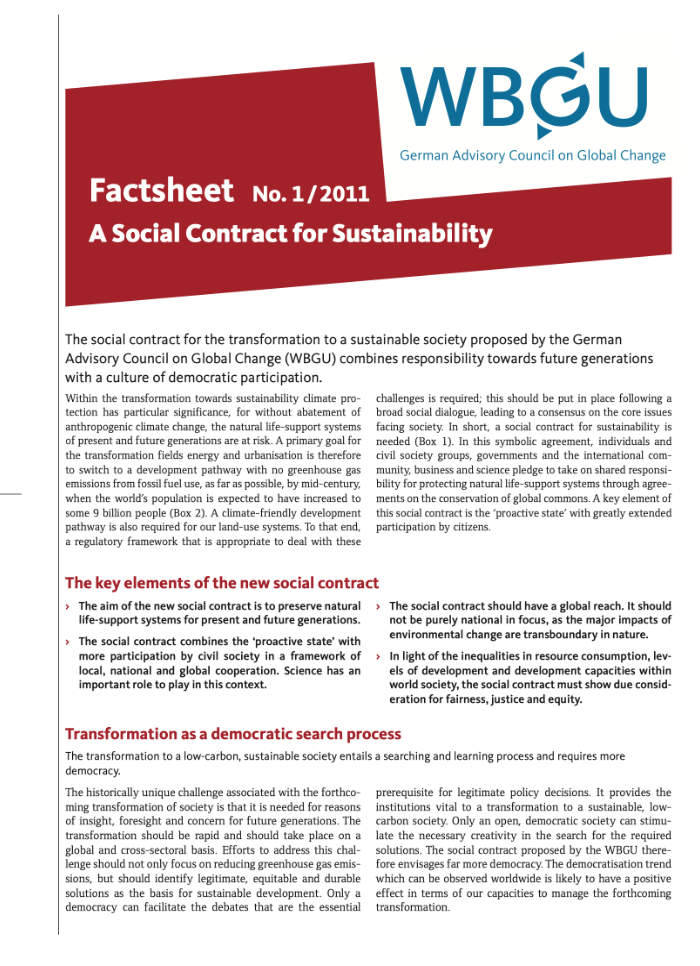
A Social Contract for Sustainability

The social contract for the transformation to a sustainable society proposed by the German Advisory Council on Global Change (WBGU) combines responsibility towards future generations with a culture of democratic participation.
Overview
Within the transformation towards sustainability climate protection has particular significance, for without abatement of anthropogenic climate change, the natural life-support systems of present and future generations are at risk. A primary goal for the transformation fields energy and urbanisation is therefore to switch to a development pathway with no greenhouse gas emissions from fossil fuel use, as far as possible, by mid-century, when the world’s population is expected to have increased to some 9 billion people.
More about this topic
A climate-friendly development pathway is also required for our land-use systems. To that end, a regulatory framework that is appropriate to deal with these challenges is required; this should be put in place following a broad social dialogue, leading to a consensus on the core issues facing society. In short, a social contract for sustainability is needed. In this symbolic agreement, individuals and civil society groups, governments and the international community, business and science pledge to take on shared responsibility for protecting natural life-support systems through agreements on the conservation of global commons. A key element of this social contract is the ‘proactive state’ with greatly extended participation by citizens.
